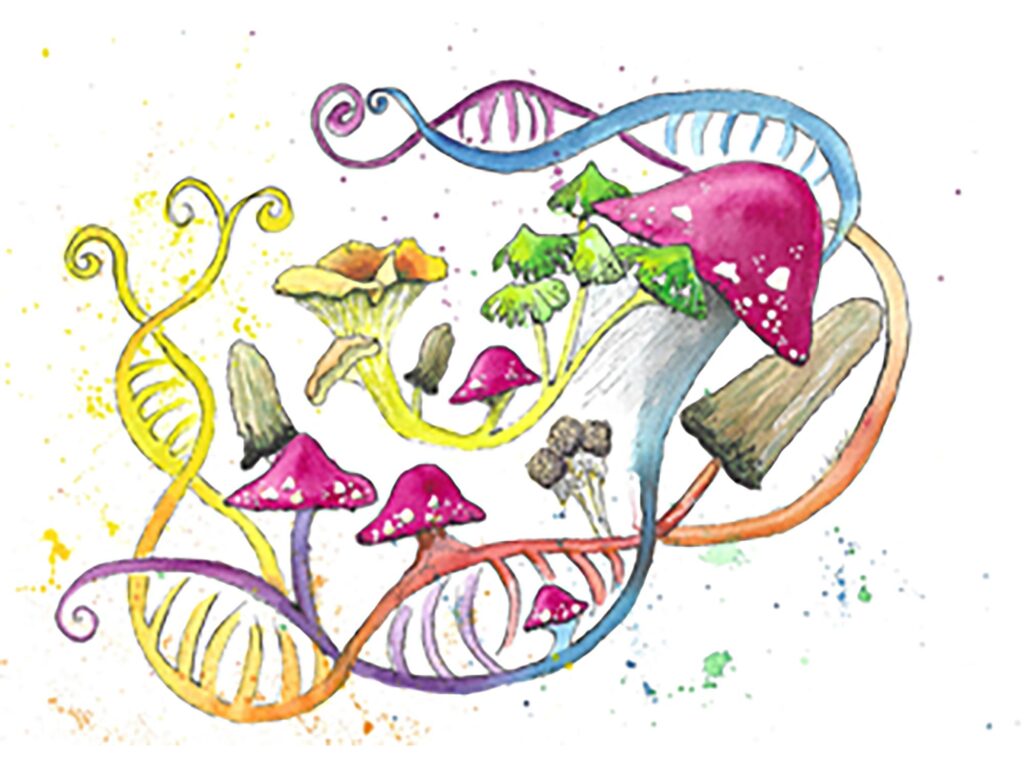
A groundbreaking study from Pennsylvania State University has revealed the first evidence of a three-way relationship between human genetic variation, the fungal component of the human microbiome, known as the mycobiome, and the risk of developing chronic diseases. Published in the journal PLOS Biology, this research broadens the understanding of human-microbe interactions in the gut, incorporating the often-overlooked mycobiome.
“Gut fungi are greatly understudied compared to other gut microbes like bacteria and archaea,” stated Emily Davenport, assistant professor of biology at Penn State and co-author of the study. “Our results demonstrate – for the first time – that host genetics can influence the fungi that live in the gut and provide clues about the physiological mechanisms that determine their abundances.”
Unveiling the Mycobiome’s Role
The study, conducted by scientists at Penn State’s One Health Microbiome Center (OHMC), highlights the potential for personalized diagnostics and biotherapeutics. “Clinicians’ ability to diagnose and treat chronic diseases is limited by scientific uncertainty around factors contributing to disease risk,” explained Seth Bordenstein, director of OHMC and professor of biology and entomology at Penn State. “Determining whether disease risk and onset occur because of interactions between human genes and microorganisms is a central challenge to resolve.”
Historically, gut fungi have been implicated in intestinal diseases, but the extent of human-fungi interactions remained largely unknown. Previous assumptions suggested diet as the primary determinant of gut fungi. However, this study utilized a genome-wide association study (GWAS) to explore the genetic influences on gut fungi and their link to chronic diseases.
Key Findings and Genetic Associations
Emily Van Syoc, a postdoctoral researcher and first author of the paper, emphasized the study’s pioneering nature. “In a small discovery GWAS cohort that was validated in two larger datasets, we find that gut fungi are associated with human genetic variants and, in turn, disease states,” she noted. The research team accessed paired gut mycobiome and human genome data from 125 individuals through the Human Microbiome Project, an NIH initiative.
“We’ve uncovered a surprising number of genetic links to specific gut fungi, and our discovery of a connection between a particular yeast, Kazachstania, and cardiovascular disease risk is particularly interesting for future studies and validation,” Bordenstein said.
The study identified 148 fungi-associated genetic variants across seven chromosomes, statistically linking them to nine fungal taxa. Despite the small cohort size, the connection with cardiovascular disease was validated using data from larger cohorts in the United Kingdom and a global consortium focused on coronary artery disease.
Implications and Future Directions
This research marks a significant step towards understanding the impacts of human genetic variation on the mycobiome. “These results offer an exciting first glimpse into host genetic regulation of the mycobiome,” Davenport remarked. “Even more exciting, they open up many more questions about how that occurs.”
Future studies may further clarify if and how gut fungi mediate chronic disease risk and elucidate the mechanisms linking genetic variation and gut fungi. The potential for different associations in various populations and interactions between gut fungi and bacteria modulated by genetics are areas ripe for exploration.
The research was funded by the U.S. National Institutes of Health and Penn State, institutions committed to addressing real-world problems affecting health, safety, and quality of life globally. However, recent federal funding cuts pose a threat to continued progress in such innovative research.
As the scientific community continues to unravel the complexities of the human microbiome, studies like this one underscore the critical need for sustained research funding to fuel future discoveries and advancements in personalized medicine.







